Apollo Go Electric Scooter review: Stylish and powerful commuter
The Apollo Go Electric e-scooter boasts performance, practicality and some cool features that help set it apart from the competition


The Apollo Go Electric e-scooter is lightweight, easy to set up, and offers a solid range. Its excellent ride quality, turn signals, bright front and rear lights, stand, and bell add value. Perfect for daily commuting, charge it overnight and use the app to enhance your experience.
-
+
Impressive ride and handling
-
+
Decent range makes it practical
-
+
Potent but good regen brakes too
-
-
Quite hefty if you need to carry it
-
-
Folding latch is quite stiff to undo
-
-
Average charging time
Why you can trust T3
Apollo Go Electric e-scooter review in a sentence: Dual motors, great build quality, and lots of comfort appeal make this model one of the better options.
I’m always keen to hop onto another electric scooter, and even more so if it comes with a solid build quality and decent air-filled tyres. If it means spending more, which is usually the case for the best electric scooter models, then fair enough, just as long as the extra cost seems justified. I’ve been trying the Apollo Go Electric e-scooter for size, and it’s a good fit for my needs.
Apollo has an impressive portfolio of electric scooters, including the Air, the Go, and the City, along with Phantom and Pro models. They’re all basically variations on the theme, and the Apollo Go seems like an ideal machine for me. I’ve previously been impressed by the Pure Advance Flex and the Sharp KS4.
Apollo follows a similar line when it comes to using neat design ideas and quality components to produce a durable and practical two-wheeler.
As always, electric scooters should be used with caution, and depending on where you are, it’s well worth considering whether it’s legal to ride one in certain locations. I always come back to the much-asked question, ‘Are electric scooters legal?’ Our handy guide can help you get the lowdown on staying legal.
[First reviewed May 2024]
Apollo Go Electric Scooter review
Price and availability
The Apollo Go Electric 2024 e-scooter can be purchased directly from the company. In the US, that means it has an RRP of $1,299 (about £1,200 for the UK market), although the Apollo website currently has it listed with a $100 discount, meaning it sits at just $1,199.
Design and features
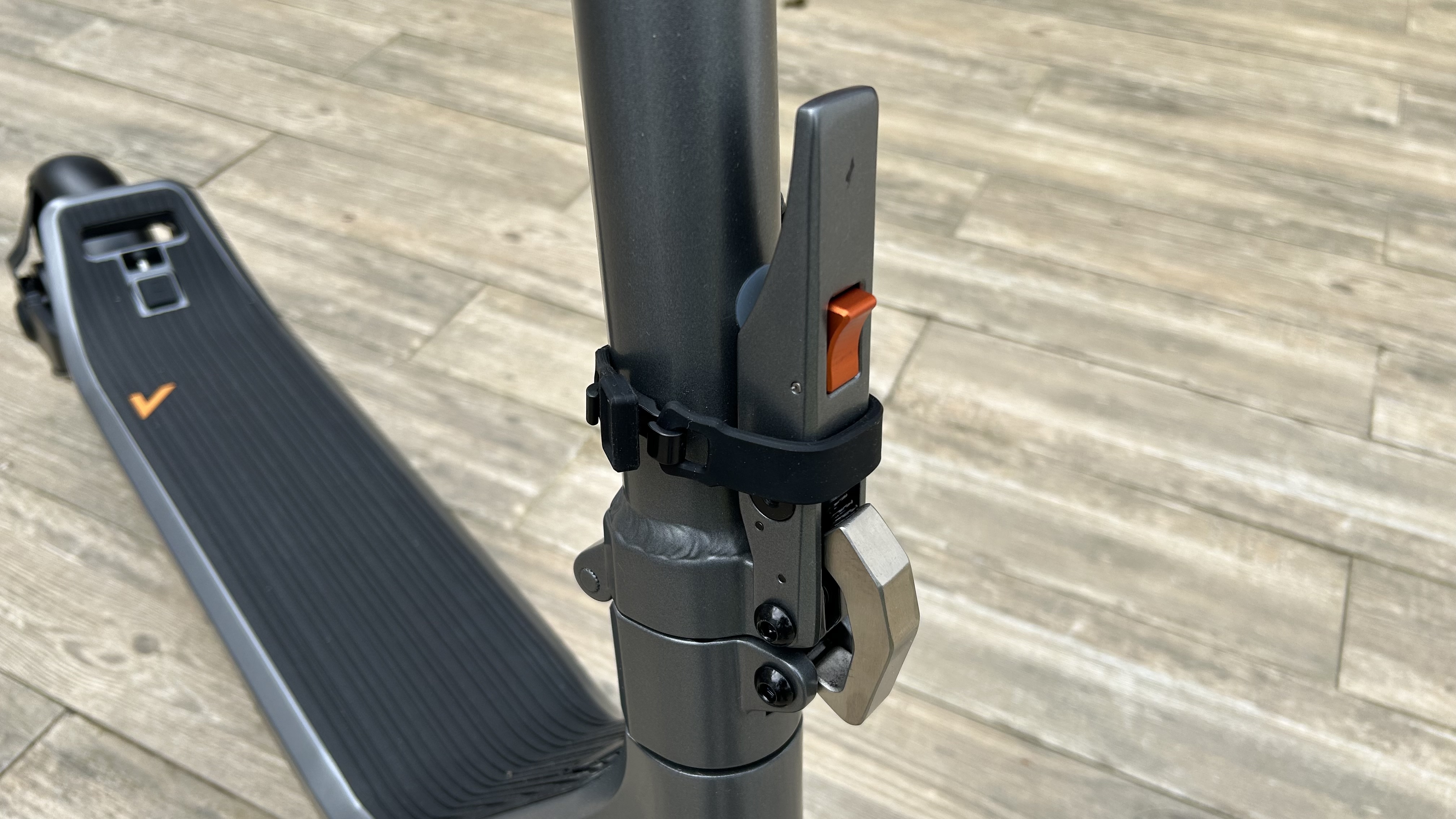
The Apollo Go Electric e-scooter is impressive on both the design and features front, with plenty that sets it apart from rivals in the electric two-wheeler marketplace. My review example arrived in a chunky cardboard box with everything inside needed to get up and running.
I didn’t have to do much in the way of assembly, either. The handlebars needed slotting in and securing, followed by some basic safety checks to ensure everything was working, and that was it.
This looks and feels like a nicely proportioned e-scooter, with a slick and stylish design that’s fully foldable at the base of the handlebar stem. When it’s not packed away, it's 49 inches (1245mm) high, 46.5 inches (1180mm) long, and 20.5 inches (520mm) wide.
The deck length is 21.7 inches (550mm), and the deck width is a generous 6.3 inches (160mm). It’s got a decent ground clearance of 5.8 inches (148mm), too, while the height of the deck itself is 8.5 inches (215mm). Fold up the Apollo Go Electric e-scooter, and it's just 22.5 inches (580mm) high.
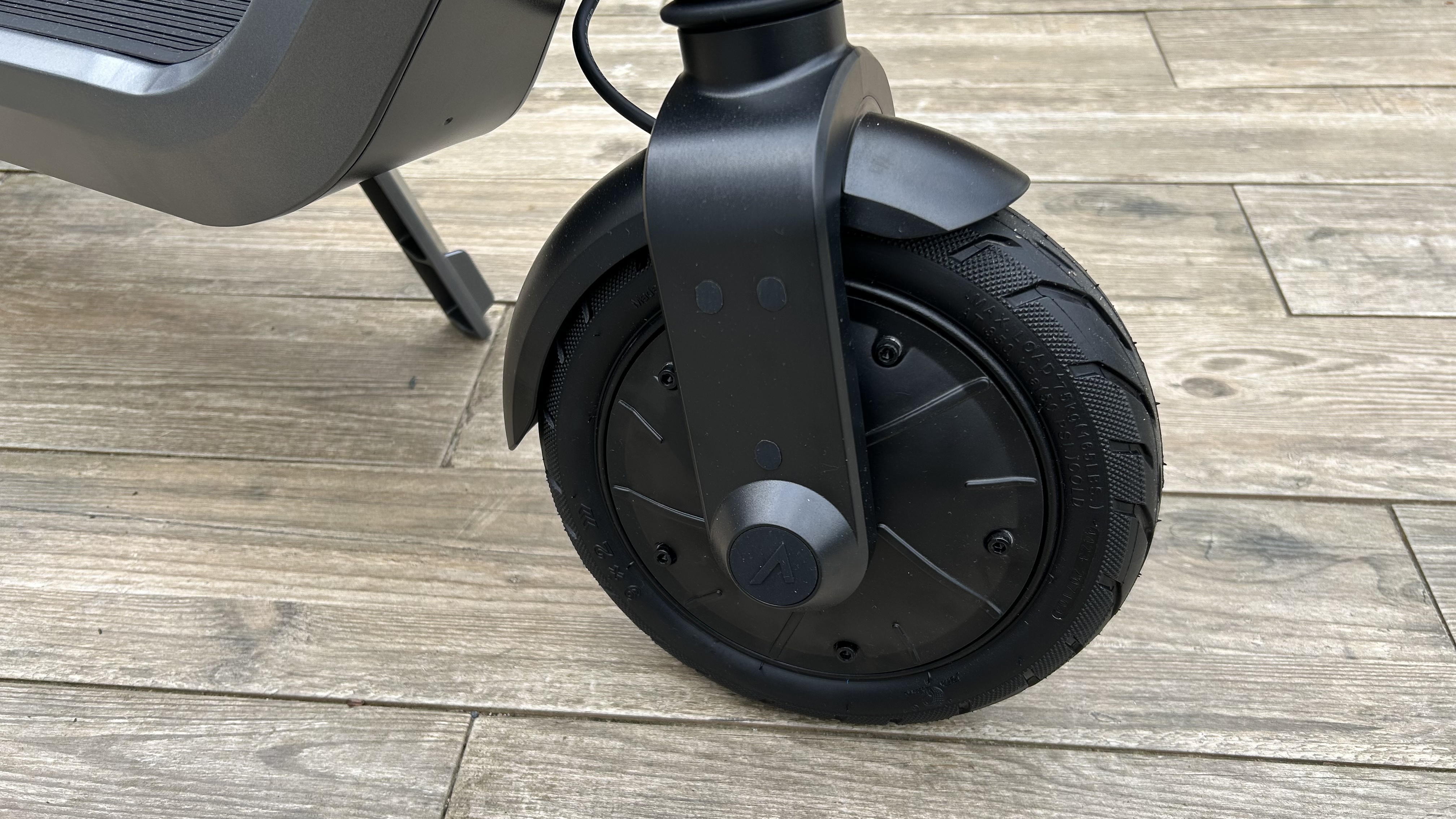
In terms of durability, the Apollo Go Electric e-scooter should also last a few years. At its core is a high-grade aluminium frame complimented by 9-inch air-filled tyres, which feature self-healing capability if you run over something sharp. Added comfort comes from a front spring and a dual rear spring, while the rubber footpad also softens the ride a little.
Up on the handlebars, I love the layout of the controls, with power, mode, thumb throttle and brake lever all falling easily to hand. In the centre, there’s a blue LED display, which is sizeable and, therefore, easy to read, although it does suffer from some reflection in bright sunlight. There’s also the option of using the supporting app for controls instead.
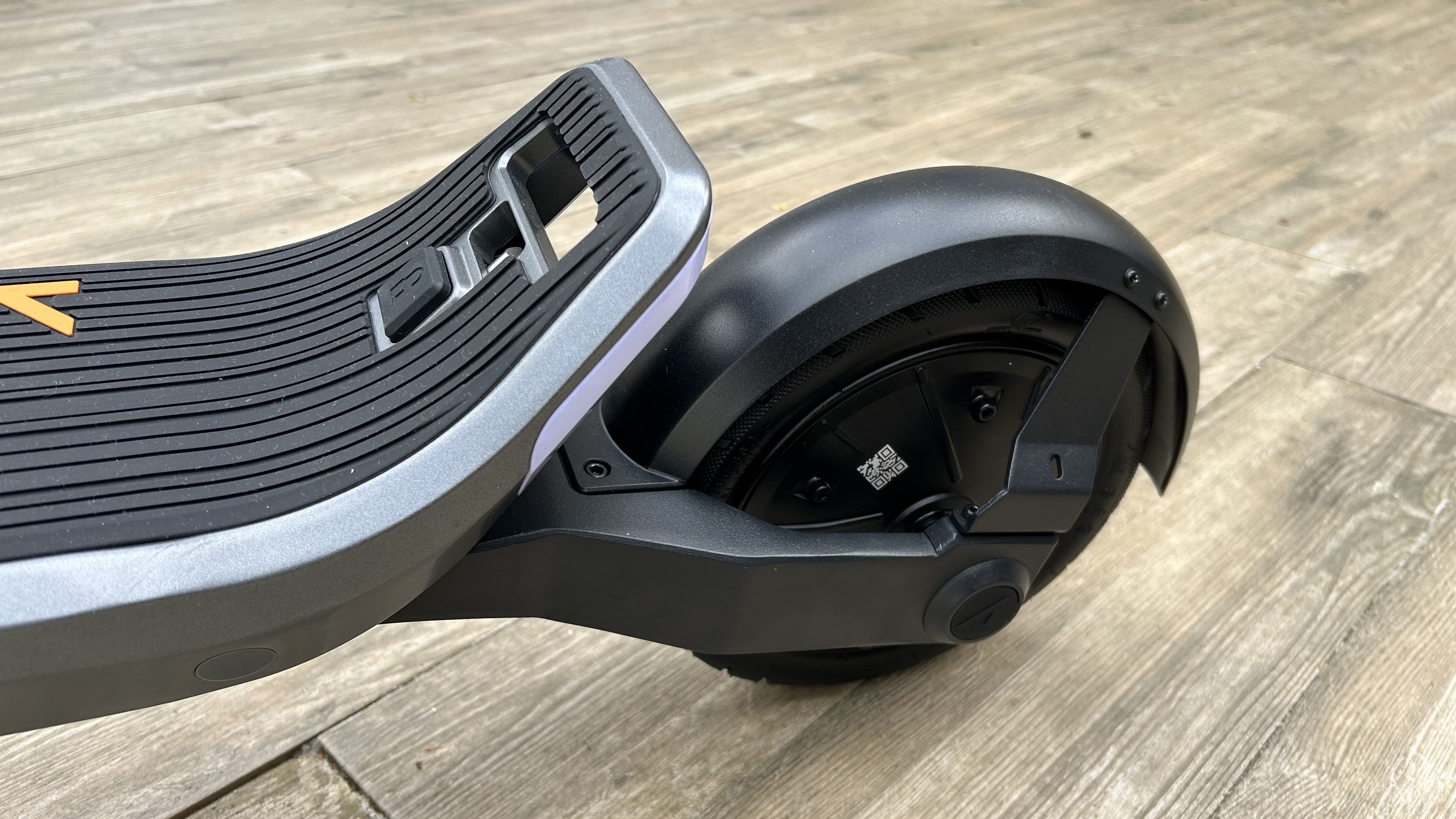
There’s a very bright strip light on the tube running up to the handlebars, which makes the Apollo Go Electric e-scooter very easy to see, while a strip taillight/brake light is similarly easy to see. Rounding it out are turn signal indicators at each end of the hand grips.
Performance
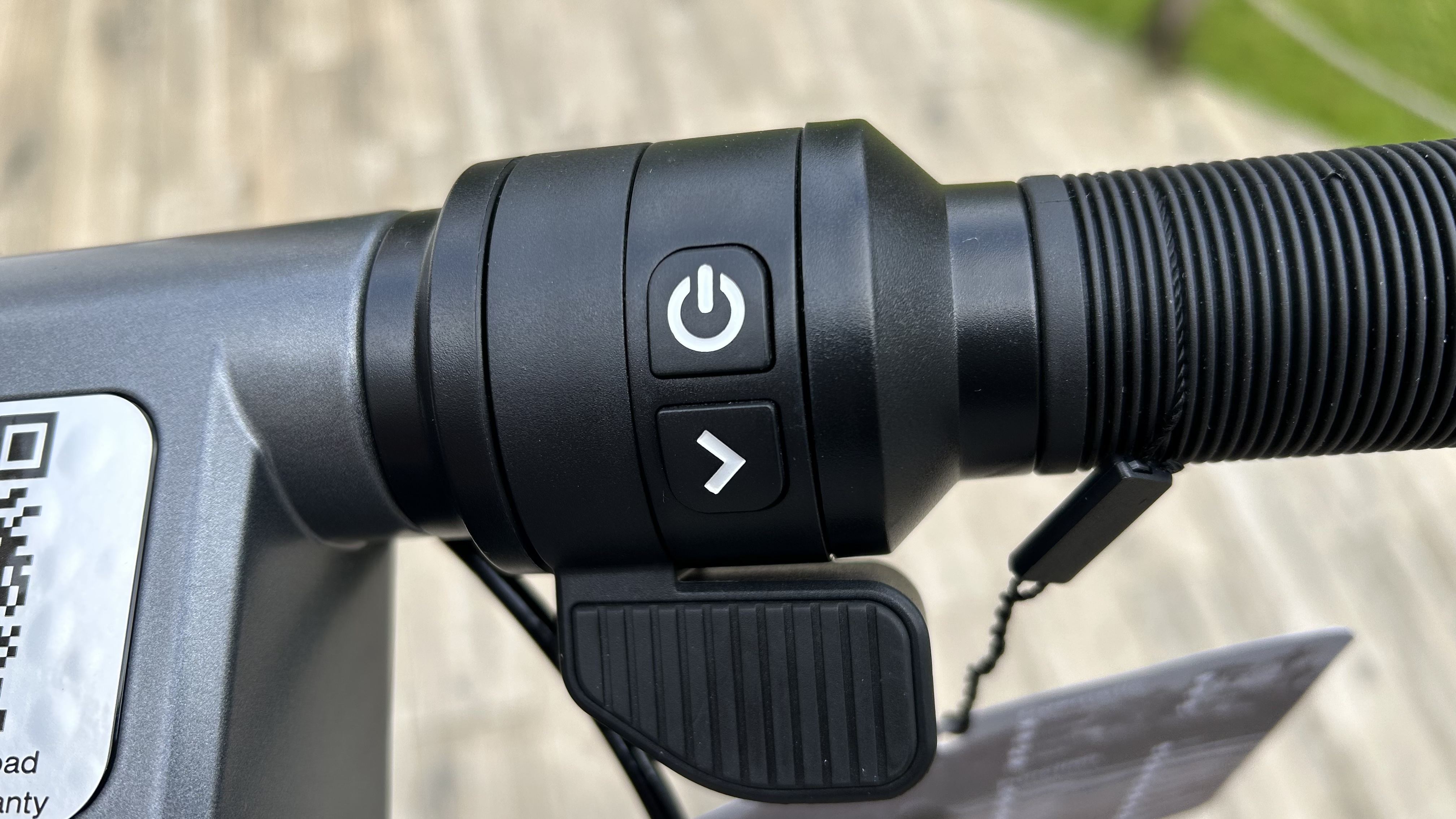
One of the most obvious beneficial aspects of the Apollo Go Electric e-scooter is its power. There are twin motors, one for each wheel, which means this thing is potent even when you push off. It’ll get up to 28 miles per hour, and thanks to the smooth, linear delivery of power and impressive suspension, the Apollo Go Electric e-scooter always feels nicely planted across a diverse range of surfaces.
Apollo states the scooter should be good for up to 44 miles using the eco mode, although day-to-day use should give you around 20 to 30 miles from the 36V battery. A full charge takes around 7.5 hours. Of those modes, eco is obviously going to keep the battery going for the longest amount of time, allowing travel up to 9mph. Normal mode offers up to 18mph, and Sport is capable of giving you 27mph.

It’s a good all-around selection, I think, and I found the app to be highly useful for setting my preferred mode selection and customising the amount of brake regeneration. Therefore, much like electric cars, each time you apply the brake, energy is channelled back into the battery, which theoretically helps to keep your battery topped up.
The other bonus of the Apollo Go Electric e-scooter is its ability to handle riders up to 265 lbs. The scooter itself weighs 46 lbs but can be lifted quite easily, thanks to a little handle incorporated into the rear of the deck.
Verdict
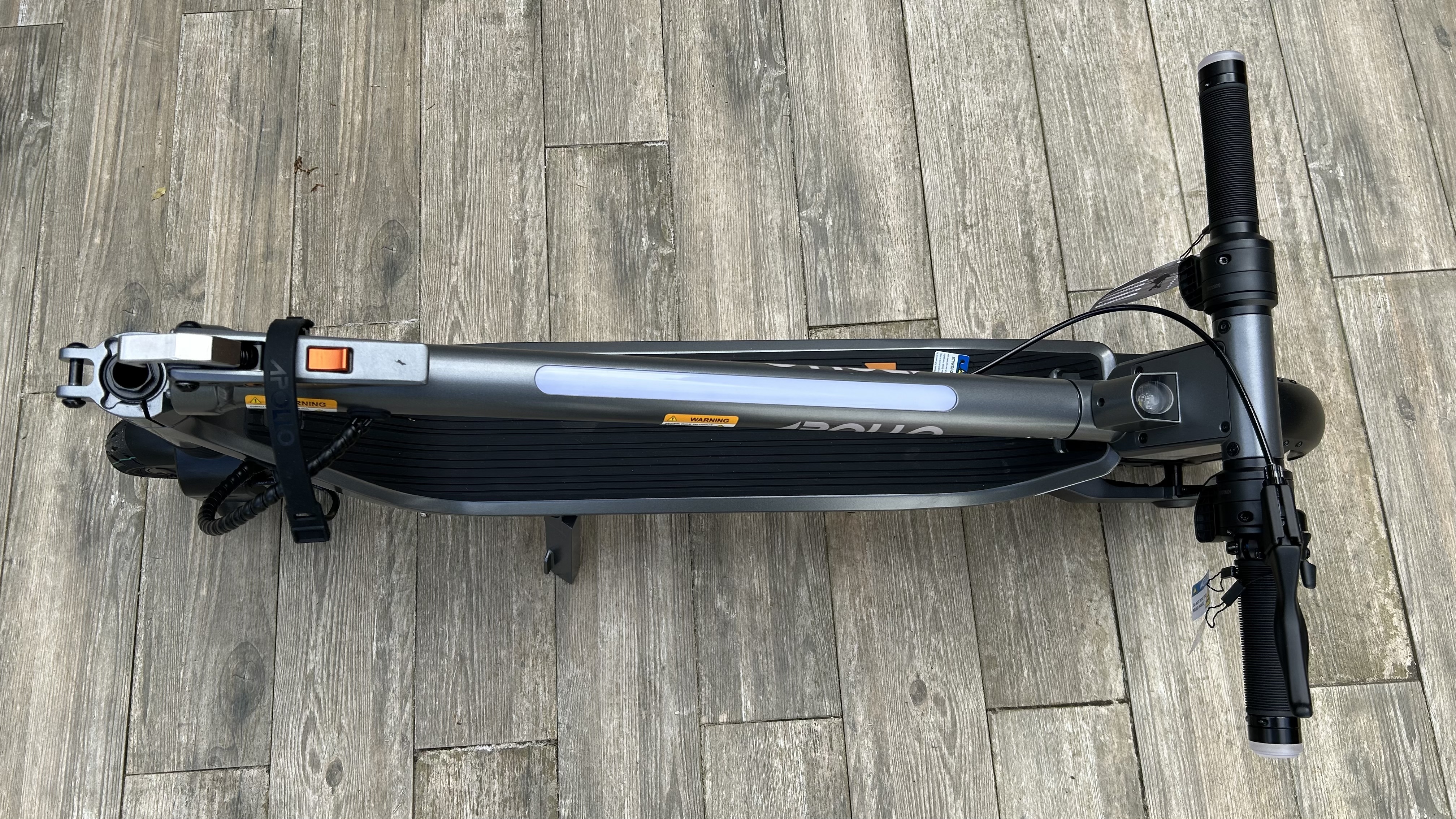
With dual 350Watt motors, the Apollo Go Electric offers plenty of performance and, thanks to its weight, also feels like a dependable proposition once you’re out and about on it. The scooter handles really well, and I’m a big fan of the ride quality. It’s got all of those little details covered, too, like having a fold-down stand and a bell, and the indicators are a natty touch, too.
Considering how many people don’t bother with hand signals, though, it’s hard to imagine those turn signals getting used much. Nevertheless, at least Apollo can say it has done its best when it comes to improving visibility and safety levels. Add it all together, and I think the Apollo Go Electric is a solid purchase for anyone needing a daily rider.
Also consider
For me, the Pure Advance Flex e-scooter is still the best of the bunch at the premium end of the pricing scale. Not far behind is the Sharp KS4, simply because it’s such a nice thing to ride, especially on unkind surfaces. Chunky pneumatic rubber tyres, plenty of range and excellent build quality make it a hit. However, it isn't exactly cheap, either.
If you like the idea of comfort while you’re riding but baulk at the thought of paying that sort of cash, there are numerous other options that will not break the bank.
Our team has recently recommended the standard edition of the Apollo City 2022 over a pricier Pro model if you're looking for something slightly more affordable. The build quality is the same, and it still has the same great features. It’s just fractionally slower but also lighter.
If you plan on carrying your scooter, the Apollo Air 2022 is a great choice. It’s considerably lighter, at 38.5 lbs / 17.5kg, but still gives a solid 21mph top speed, 10-inch wheels, and front fork suspension. Similarly, the Segway Ninebot Max G30LP is 38.6 lbs / 17.5kg and tops out at 18.6mph (though it is limited in the UK).
Get all the latest news, reviews, deals and buying guides on gorgeous tech, home and active products from the T3 experts
Rob Clymo has been a tech journalist for more years than he can actually remember, having started out in the wacky world of print magazines before discovering the power of the internet. Since he's been all-digital, he has run the Innovation channel for a few years at Microsoft, as well as turning out regular news, reviews, features and other content for the likes of Stuff, TechRadar, TechRadar Pro, Tom's Guide, Fit&Well, Gizmodo, Shortlist, Automotive Interiors World, Automotive Testing Technology International, Future of Transportation and Electric & Hybrid Vehicle Technology International. In the rare moments he's not working, he's usually out and about on one of the numerous e-bikes in his collection.

